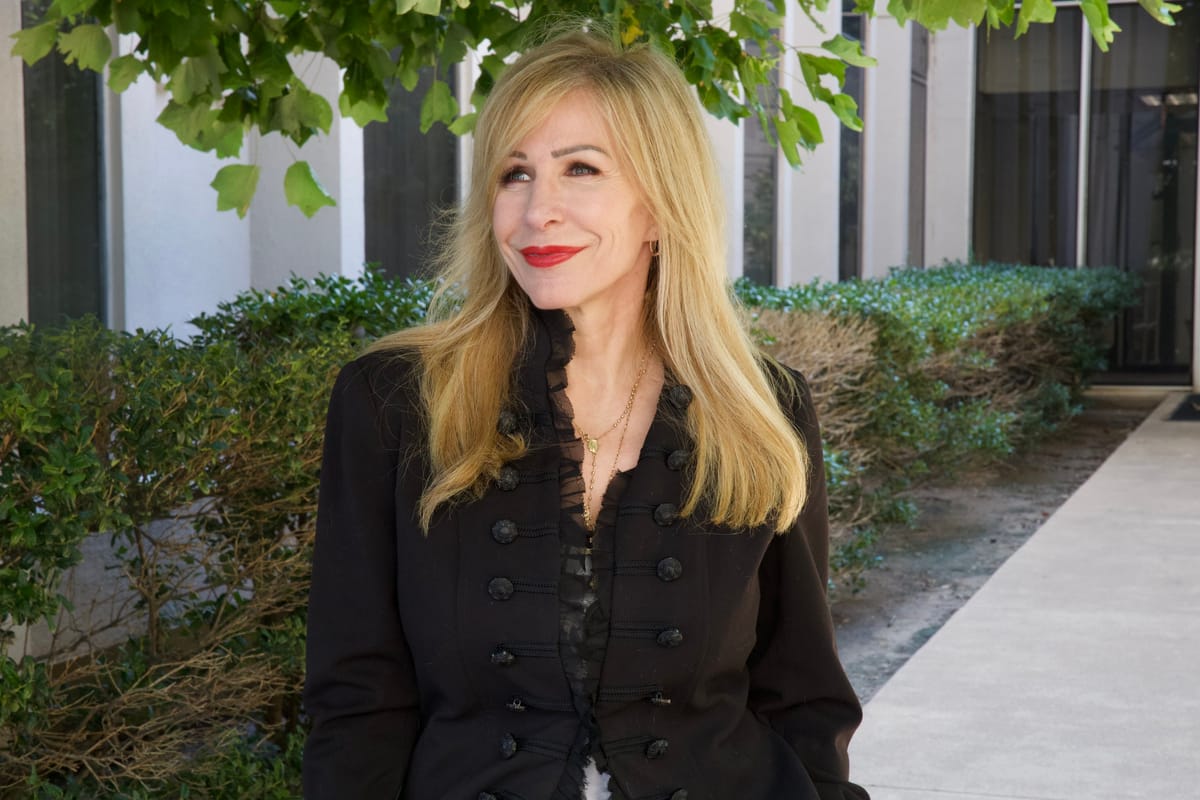
All her life, Commissioner Carrie Slatton-Hodges has had a heart for helping people in need. Slatton-Hodges and her team recently launched the 988 Mental Health Lifeline in our state, offering services for mental health crisis calls via a 24/7 hotline. She spoke with us about her personal journey, and the important effects launching the 988 Mental Health Lifeline will have on Oklahoma.
Tell me about your path to become the Commissioner for the Oklahoma Department of Mental Health and Substance Abuse Services (ODMHSAS).
I grew up in OKC from the age of 13 on. I’m a Putnam City North Panther. I moved to a farm in western Oklahoma — just east of Bessie on the Washita River — as a young adult, and completed my graduate work at Southwestern Oklahoma State University in Weatherford, while raising angora goats and alfalfa.
I started my work in mental health in a rural setting covering eight counties, and have provided, developed and supervised most any type of behavioral health program you can think of. I’ve always loved to build programs and budgets and collect data to analyze what works and what does not.
I think I was born a counselor by nature, and I was raised by very intelligent parents who also strongly believed in giving back to our community and to those less fortunate. One of the best gifts in life is to see someone go from being very ill to seeing them at their best. I’ve had a lot of that luxury in my life, and have seen it from a variety of vantage points during my professional career. I’ve held a variety of clinical and administrative positions, both in the public and private sectors, ultimately leading me to the role of Commissioner. I have a very strong commitment to supporting the wellbeing of Oklahomans.
Your team recently launched the 988 Mental Health Lifeline; describe what that means for our state.
The launch of 988 is just the beginning of a complete transformation of how people access treatment, receive support and understand how to help a loved one in need. Having to remember only three digits (to call or text) when needing to talk with someone immediately who understands mental health issues and addiction challenges is a huge win for our state and the lives this will touch.
Early in my career, I spent a year conducting crisis evaluations from 5 p.m. until 8 a.m. in western Oklahoma, and the one thing I took from that experience is that mental health diseases do not discriminate. I’ve seen persons from every walk of life brought to their knees by anxiety, depression, addictions and psychosis. I’ve also witnessed many struggling individuals go on to live full and healthy lives with access to support for their mental health challenges.
What achievement are you most proud of at ODMHSAS?
There is so much we have accomplished over the years, so it’s hard to single out just one. I think some of the highlights from just this past year include transforming our crisis response system by distributing more than 22,000 iPads to community partners and clients, creating an alternative transportation service to law enforcement for those in need of psychiatric care and helping to secure housing for 1,463 people who would have been homeless otherwise.
These are just the tip of the iceberg in terms of what we do every day at ODMHSAS. At the end of the day, I am most proud of the staff that show up each and every day — they are highly committed to the mission of our organization.
What should we expect to see from ODMHSAS and the 988 Mental Health Lifeline in the future?
The crisis continuum behind 988 will only continue to improve as the years go on. You will see more layers of technology to make seamless transitions between service access, and stronger partnerships between treatment providers. We will see more people reach out before their situation becomes a crisis event — and that is a phenomenal shift in how we’ve typically responded as a field in years past.
What would you say is a key element to building programs and initiatives that make an impact?
Over the years, I have learned that there are so many people who care about issues of mental health and addiction, many through life experience or family experience, who are willing and able to partner to continue developing and growing the best services and support.
The most important aspect to building successful programs and moving initiatives forward is bringing in the subject matter experts and developing partnerships to collectively accomplish what we know so many Oklahomans need us to do. Without including others in the development and really valuing the lived experience of others, we wouldn’t be as successful.
What is your favorite “life hack” — something that helps make life easier for you?
You know, I have found the greatest life hack for me is to rely more on my brain than on devices to make my life easier. While some might think the opposite is true for them, I’ve found that what makes life easier for me is to pause a moment longer and use my own brain.
With the experience you have now, what advice would you give to your younger self?
I would make sure to stress to my younger self that I need to worry less and have a better work/life balance. Family and friends should be as important as work, as they will not always be here. The balance of giving back to yourself though time with family and friends makes you better professionally.
What is one of your favorite life’s “luxieres”?
I love to lose myself in a good fiction novel. It’s a great escape. If I’m able to also add some decadent chocolates in the mix while submerged in a good book, it just increases the luxury of the moment.

